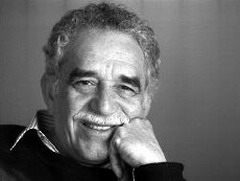Tribute to García Márquez at Film School in Havana
- Submitted by: admin
- Arts and Culture
- Cinema
- 11 / 15 / 2006

By: María del Carmen Vasallo
Colombian Nobel Literature Award laureate Gabriel García Márquez to head some of the activities marking the 20th anniversary of the San Antonio de los Baños International Film and Television School (EICTV), one of the most prestigious of the world for it has trained hundreds of seventh art professionals from the American continent.
Located in the outskirts of the town of San Antonio de los Baños, some 50 kilometers from the Cuban capital, the headquarters has a Latin American nature, though theres a limited number of island students, and depends on the Foundation of New Latin American Cinema, presided by García Márquez.
According to filmmaker Julio García Espinosa, the EICTVs director, its greatest contribution "has been to create a membership on the part of the students to a continent, a sort of a big homeland".
García Espinosa and several of his collaborators gave to know at a press conference Friday the activities scheduled for the 20th anniversary of the EICTV, which will join other events already held in different places of the world such as Biarritz, France; Mar del Plata, Argentina; Cartagena, Colombia and Madrid, Spain.
García Espinosa explained that the San Antonio de los Baños headquarters would host the celebration December 8-15, opening date of the school, and that it would include a stamp cancellation, book launches and a recognition to the locality that houses the school, given it has served as location for hundreds of films and exercises for the students.
For two decades, the Havana headquarters graduated around 500 picture professionals, directors, scriptwriters, photographers and sound artists among other specialties delivered there.
The maestro said that García Márquez wouldnt miss the party, because hes one of the main inspirers of the project along with Cuban President Fidel Castro.
García Espinosa underscored that one of the most important aspects for him is the institutions closeness with the realities of the region.
"Its important that the film and TV schools do not turn their back on reality, that they not only be a place where to study a technique", the maestro commented.
In that context, he was optimistic in the face of the recent groups of youths because, according to him, the students from the '90s used to come disappointed or a little interested in the problems of their nations, whereas the social topic has remerged in the last few years.
The institution is inspired on the so-called New Latin American Cinema, a trend aroused in the '60s and '70s and permeated by new topics, but always with the backbone of the problems and their possible solutions.
Source: Cubarte
Comments